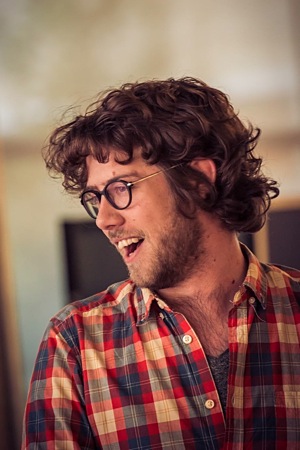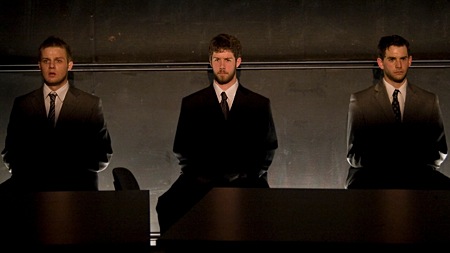Spotlight on Alumni: Matt Marshall
 Matt Marshall
Matt MarshallCreative Director Matt Marshal (BA 2010) gives us an update on what he’s been up to since graduation, and shares his thoughts on life at York.
Life has been a little on the crazy side. Towards the end of my time at York I founded Theatre Bassaris and directed Closer by Patrick Marber for the company. After that I moved to Vancouver to pursue a Master’s in Digital Media. During that time I worked with Hybridity Media in Vancouver as a Design Lead for interactive art installations and projection mappings for Nuit Blanche Toronto, Transmission Global Summit in Victoria, and the Vancouver International Jazz Festival.
I had a brief stint in visual FX for film working at Digital Domain on Iron Man 3, Ender’s Game, and Jack the Giant Slayer. I am also an Art Director with a creative agency for their CG and animation projects.
Recently, I have settled into independent game development, which is where I wanted to be when I moved to Vancouver. I am presently the Creative Director and Co-Founder of Wayward, a small independent studio, and I am the Game Director of “The Veil“, an interactive story episodic that we are developing in partnership with Microsoft and Nokia.
In which ways has your education at York, and in Theatre in particular, helped you in work and life?
Theatre training and study over several years develops a lot of “soft skills” that are hard to see until you go out into other industries. Being able to tell stories and having a “sixth sense” for quality storytelling is a huge one because it is a skill used for selling yourself and your ideas. Being comfortable talking in front of people, being able to collaborate on creative work, being on time, and being able to work under pressure are all skills that are not abundant elsewhere. Add this to the wide range of personalities you deal with in the theatre, and you actually have a solid foundation toolset for creative leadership.
In my final year, year and a half at York I turned away from acting to focus exclusively on directing. Even with just a short amount of time learning the craft, I definitely found ideas, tools, and methodologies that were global to all kinds of creative direction. It’s actually one of the few places you can learn about leadership for creative work at an undergraduate level.
What is your fondest memory of studying Theatre at York?
 Jamie Maczko, Matt Marshall, and Jim Schmidt
Jamie Maczko, Matt Marshall, and Jim Schmidtin CoEd: Table Talk, directed by Ross Manson.
I have two. The first was Assistant Directing TableTalk under Volcano artistic director Ross Manson. I learned a tremendous amount about the craft, but I also got the experience of a lifetime when a rogue poisonous spider bite downed one of the cast members. And guess who was first in line to understudy? It was a whirlwind 24 hours where I learned all the lines, the blocking, and the fight choreography, and sure enough I went on for the second preview. I got my two days in the acting conservatory.
The second memory was assembling Theatre Bassaris to put on Closer in the Eleanor Winters Art Gallery. I had never directed a full play before and it was a doozy. Lots of mistakes were made, but the show went up, sold out, and helped start a small theatre company in Toronto. We all worked incredibly hard, learned a lot, and I gained a lot of confidence as a director.
If you had the chance to go back and visit your younger self as you were beginning at York, what advice would you give yourself?
Streaming doesn’t matter. You don’t need to be in the conservatory to be an actor, and don’t start sizing up all your peers on day one.
Allow yourself to gravitate to what you are good at, and start making things as soon as possible—even if they aren’t good right away. Don’t wait for school to present you with the opportunity to direct, produce or perform. Get together with smart people, apply what you are learning and just do it.
Do you have any advice or tips for York students just entering the dept.?
I’m going to say something a little specific to what I am doing now, but: take up computer programming. You don’t need to become a software engineer, but knowing the basics of programming is about to become a hugely desired skill over the next few years with a huge (1 million+) shortfall of computer science graduates on the horizon.
Some light programming experience opens up all kinds of fun possibilities for theatre artists like motion-tracking and projection-mapping. It also might just get you a well-paying job while you explore and experiment with theatre arts without worrying about starving.
You don’t need to know as much about “math” as you might think.